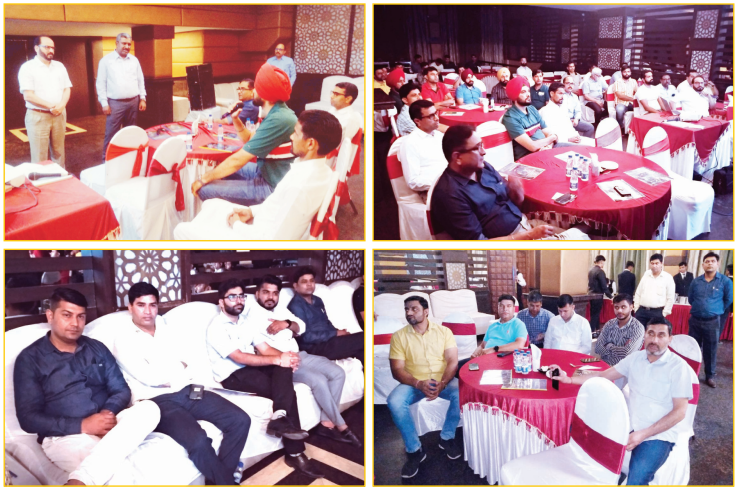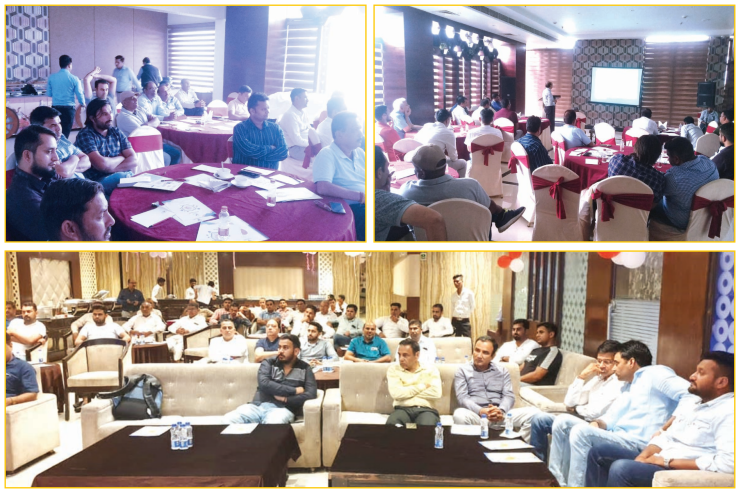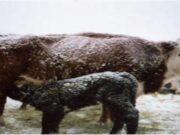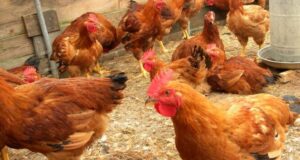
A series of technical meeting has been conducted by Ventri biologicals div. of VHPL for breeders at Jind, Panipat & Kaithal, and for layer at Kurukshetra. Meeting is well organised by Shashi bhushan kumar (Zonal manager) and his team Sandeep Saini RSM & Sunil saroya RSM under the guidance of Mr. HS Padda DGM.
Dr. S P Singh (GM North ) & Mr. Satbir Lakra (GM venco sales) spoken about the current chalenges and corrective measures.
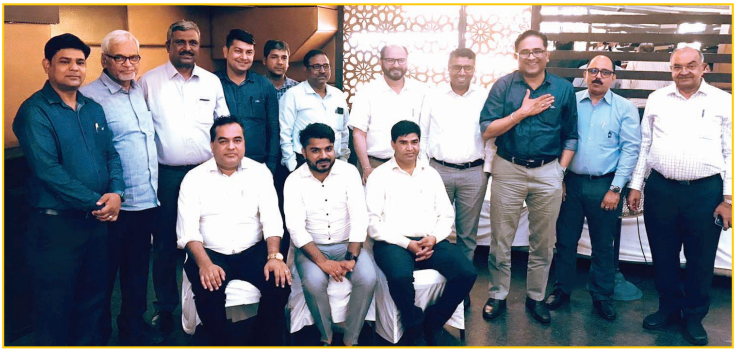
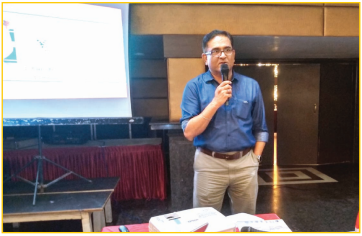
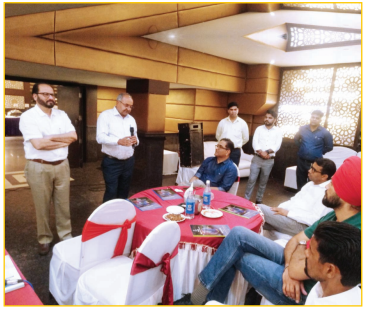

Deepak Khosla addressed the gathering over challenges the poultry industry is facing related to Poultry immunity, health, and production. The emergence and re-emergence of diseases will continue to be major challenges to the current situation and the strategic future of the industry. Disease control, high production, product quality, and reasonable production costs have been the recent main goals of the poultry industry. Hence, meeting per capita consumption and welfare to humans necessitates continuous efficient and goal-oriented healthcare to control disease spread and decrease the application of antibiotics. These endeavors will include the launch of programs to control infectious diseases in broiler breeders influencing broiler performance.


Dr. Prakash reddy, spoke with the topic on “EXTENDED IMMUNITY IN BREEDERS: INFLUENCING BROILER PERFORMANCE”.
In the meetings, several factors were discussed which can hasten and/or prompt the emergence of animal diseases including:
The development and structure of poultry farming, amplify global competition and cost of production and increase the poultry and poultry products movement worldwide.
The increased movement could also raise the hazard of introducing infections to specific regions that are free from such diseases.
Various infectious pathogens, including bacteria and viruses, contribute to infectious diseases in poultry and can be transmitted and subsequently spread in farms via horizontal and/or vertical transmission. In India, the most common poultry diseases are Infectious bronchitis virus, Avian flu, Newcastle disease, Infectious bursal disease, Avian Adenovirus (IBH/HPS), Chicken Astrovirus, Avian encephalomyelitis, Mycoplasma gallisepticum, Colibacteriosis, Infectious Coryza, Coccidiosis and Infectious laryngotracheitis (regional Vaccinal laryngotracheitis).
For proper understanding of disease control, these poultry diseases were categorised as:
Category 1: Disease with high problem in breeder productivity with high production drop and mortality with poor quality hatching eggs, low hatchability and poor quality chicks. The herd immunity with high and uniform humoral immune response is very important during the entire life cyde.
Ex: Avian flu, Newcastle disease, Infectious bronchitis virus.
Category 2: Diseases with less impact on breeder productivity, but when transmitted vertically to progeny can have huge impact on hatchability and broiler performance
Ex: Avian Reovirus, Avian Adenovirus, Chicken Astrovirus, Avian encephalomyelitis, Salmonella Enteritidis, Salmonella Typhimurium, and Mycoplasma gallisepticum.
Category 3: Diseases with age resistance in long-lived birds, with no impact on egg production and hatchability, but the maternal antibody transmitted can protect against early sub-clinical infection/ immunosuppression.
Ex: IBDV- Early diagnosis of the source and route of virus spread help to control the disease and develop an effective vaccine for emerging variant diseases. In a future study, improvements in laboratory diagnosis will offer sensitive, fast, and precise disease diagnosis, and early mediations will be a reality.


- Vaccination has had and will continue to have a major influence on the development and strategic growth of the industry, allowing economic and effective control and eradication of diseases. However, the vaccine and vaccination strategies varies based on the geographical variations happening localy. So, there is a need to “Think globally and Act Locally”, based on the strain variations happening in India, which includes the prevalence of – Avian infectious bronchitis virus variants Gl-24 lineage (Novel Indian variants)
- Local variants of Avian Reovirus causing Malabsorption, Tenosynovitis, and Brittle bone disease.
- Avian Adenovirus serotype 4 and 11
- Chicken astrovirus variants subgroup Bili causing visceral gout (nephritis) and Malabsorption (enteritis)
- Several pathogens are implicated as potential reasons for poultry diseases, either individualy, in synergy with different other microorganisms (multi-causal), or facilitated by non-infectious causes. Any stress-causing agent can hinder poultry disease resistance, increase the susceptibility of chickens to infections, and decrease the effectiveness of vaccinations. Ex: CRD complications with Mycoplasma.
- A comprehensive approach for Mycoplasma control programmes with VH-MGK was discussed extensively with data around the country with both single and multi-age breeder flocks.
- Causes of Vaccine Breaks: In most cases, the use of vaccination creates a false sense of biosecurity and hygiene. Generally, vaccination does not prevent infection; rather, it only leads to a reduction in the number of outbreaks. Several factors can lead to the so-called vaccine break: incorrect transport and storage of the vaccines, faults or deficiencies of the administration, and high infectious pressure in an area.
- The occurrence of unanticipated and new diseases and new legislation will also remain essential issues. Restricted use of a vaccine, such as the epidemiological situation, cost-benefit analysis, availability of the vaccine, and governmental regulations.
- As a general rule to finalize the vaccination program, adequate Immunity is an obligatory need in order to manage infectious pressure on the farm, thus providing proper vaccination programs for disease control is essential to ensure the health status of poultry. Furthermore, there could be subdinical infections within the flock, and other immunosuppressive diseases or infections with field strains could occur shortly before or after the vaccination, and/or there could be infection with mutant strains. Finally, the quality of the vaccine is affected by the number of antigens, poor storage conditions, improper handling, and administration.
Launch of VIPx (IBD immune complex vaccine), a hatchery vaccine as a complete solution to the current issues related to the cross-protecting strains and gaps in IBD vaccination procedures in the field.
- VIPx vaccine includes Ventri’s Intermediate plus strain bound with specific homologous antibodies,
- The Ventri’s Intermediate plus vaccine strain was most effective in controlling WIBDV in India since two decades, with superior cross-protection against the Novel variants of IBDV emerging in India.
- Early immune response to the low maternal antibody chicks, preventing subclinical IBDV infections.
- Reduced vaccination stress with the farm vaccination
- Uniform distribution of the vaccine dose. Minimal interference of neutralizing Maternal antibodies Vaccine virus competes with the field virus to reach the bursa at the earliest and stimulate active immune response. Less bursal damage and good immune response to ND, IBH, IBV, etc. vaccinations in broilers.
Large scale outcomes research data in >20 million broiler chicks, conducted across the country were discussed. Vast comparative data within the same farm and branches with the controls vaccinated at the field on day 12 were discussed. Improvement in the performance with reduced incidence of IBD leading to economic benefits was seen with VIPX hatchery vaccination. Along with less handling stress at farm level, resulted in the good uniformity of birds was noticed. Farmers were happy since their vaccination work got reduced and chances of vaccination failures due to improper maintaining of the cold chain, usually encountered at the farm level were getting avoided.
